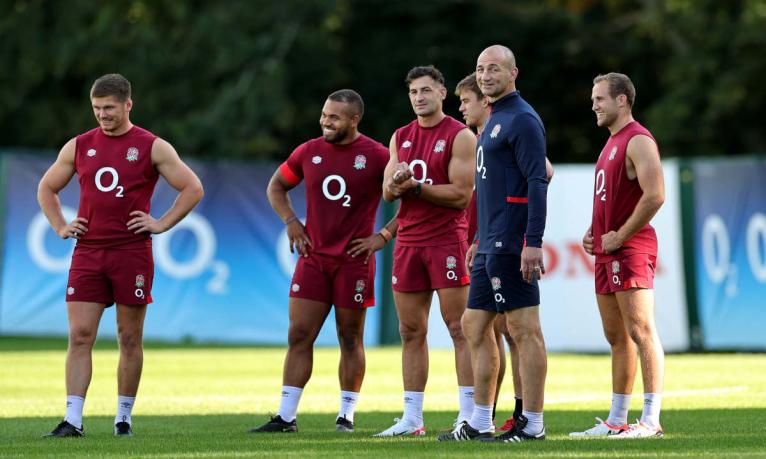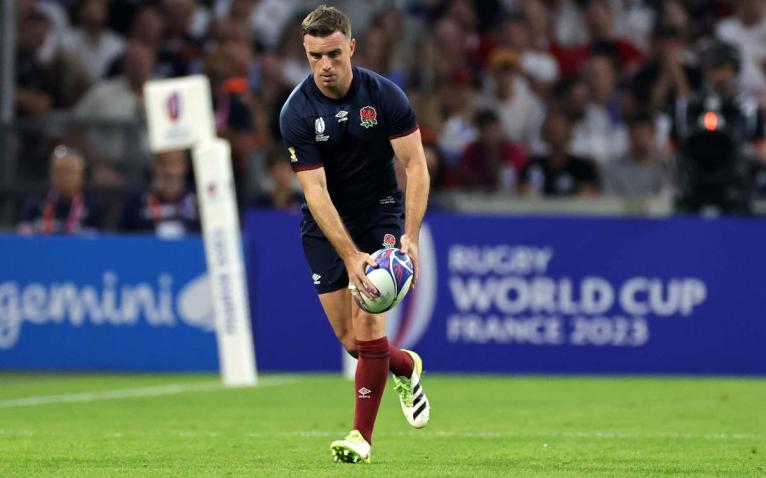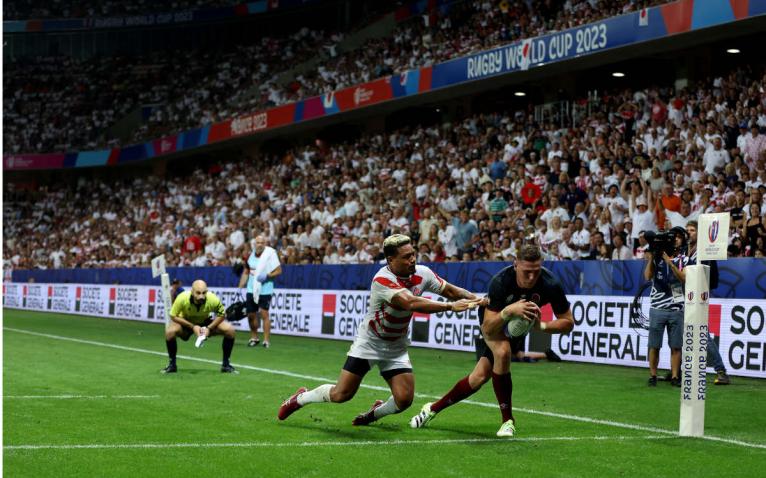Steve Borthwick is running a fine line in this World Cup. He has finally made England successful but he has done it through a widely derided style of rugby. Whisper it, but he is fast becoming rugby’s Jose Mourinho.
Of course, by its nature, when a new appointment is made, most new coaches are parachuted into an environment which could best be described as a work in progress, at worst, dysfunctional. Usually the team is losing, or at least not living up to expectations, and new ideas, new energy and new motivational schticks are required to turn the tide. The shrewdest coaches can cast aside their fondness for a particular style and instead implement a gameplan that is required.
For those with short memories, it is worth recounting that when Steve Borthwick took over Leicester Tigers, they were in freefall. They had been one position shy of relegation two years running, and were once saved by Saracen’ expulsion for financial irregularities. Indeed, they hadn’t made the playoffs in three years and they hadn’t won the league in seven years, this after reaching the final in every of the previous nine years. In short, they were broken.
Under Borthwick, in his first season, they improved their points haul by 25 and finished sixth in addition to reaching the Challenge Cup final. The next year they won the league. They scored the sixth most tries in the league but conceded eight tries less than the next lowest team. Borthwick slowly turned them into a defence-first side who made sure they didn’t let their heads drop until the final whistle was heard. Of course, they weren’t Fiji, but they were successful and when Eddie Jones was floundering it was Borthwick who was summoned by the RFU top brass.

Nine months on, here we are. Borthwick had an underwhelming start to his England career and he’d barely arranged his desk before some voices in the media were calling for him to exit stage door left. But, like it or not, he has turned a corner in this World Cup.
There has been some revisionism since England won their opening World Cup game, comfortably, against Argentina but there was a time when the prevailing opinion was that England might not escape the group and certainly wouldn’t beat the South Americans. They’ve done both and now have a winnable quarter-final against, most likely, Fiji. But still there is disquiet about their style. So what are they actually trying to achieve?
England are also able to score from distance. That pressures the opposition to not give away penalties anywhere in their own half.
From the outside, it looks like England simply run out of ideas and so hoof a pointless kick to their opponents. This falls some way wide of the mark though. The purpose of Borthwick’s game plan is to ensure his opponents are as far away from the English try line as possible. That has been successful, England have the third best 22 entry difference (their 22 entries minus their opponents) at the World Cup. Those limp kicks when close to the opposition line may not be exciting viewing but they do push the opponents back and force them to play from deep.
From an attacking perspective, not only are England generating those 22 entries but they are also able to score from distance. Against Argentina George Ford was able to knock over drop goals from near enough the halfway line and in Elliot Daly they have someone who can make long range penalties with his howitzer left boot. That pressures the opposition to not give away penalties anywhere in their own half. That can have significant knock-ons where the opposition may choose not to compete at breakdowns to avoid penalties which can gift easy possession and increased ruck speed. Again, it might not be exciting but it is effective.

One of the criticisms of Borthwick’s England has been that they are able to play with careless abandon, as we saw against Japan for the last 20 minutes, or Chile for most of the game, but seemingly choose not to. This takes us to one of rugby’s most obvious but underrated statements; it’s much easier to win a game you’ve already won. Against Japan, England had done all the hard work, built a lead that they were comfortable with, and then cut loose. Against Chile the win was all but assured once they’d stepped onto the pitch. In those situations you can make winning look easy because the game is already yours. Play like that in their likely quarter final against Fiji and the game will be gone before half time.
Wales showed this in their opening match against the Fijians when they played fast and loose and struggled in the first half. In the second half they went back to basics and were actually far more effective. Against Argentina, England never really cut loose but they were facing a structured, usually effective team who could have forced their way back into the game at any point. For Borthwick the plan was to just build the lead and prevent Argentina from getting a losing bonus point.
Borthwick walked into a bin fire with England but he has turned them around
This style could go a long way. England will struggle to put games away against the better sides because they don’t score many tries. But they make it very hard to score against them. If a team don’t concede tries then they will spend much longer in matches and with a chance to take the win. Of course, if you could choose your quarter final opponents then England would be high up there but they have the potential to frustrate and cause an upset against any side in the World Cup.
Borthwick has inherited a raw deal in his first year with England. The ease of the draw and the fact England have strode through the group have meant that very little analysis has been done on them and instead they’ve just been seen as lucky and a bit, well, boring. They have been lucky to receive the draw but once there, they’ve made it look very straightforward. For that Borthwick deserves huge credit. He walked into a bin fire with England but he has turned them around, maybe not fully yet, and they have a great chance of making the semi-finals.

His game plan isn’t exciting, but there are very few teams in the World who would turn their nose up at a semi-final spot just because it came from a dull game plan. And is it dull? It’s technically savvy, effectively done, and quick to implement. Maybe it’s pragmatic rather than dull, and remember pragmatism wins you World Cups more often than not.



Comments
Join free and tell us what you really think!
Sign up for free